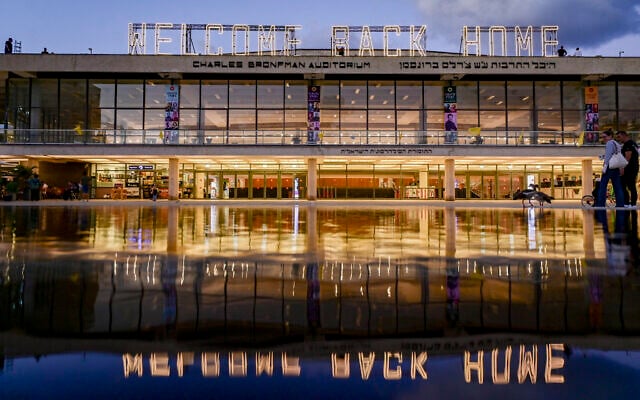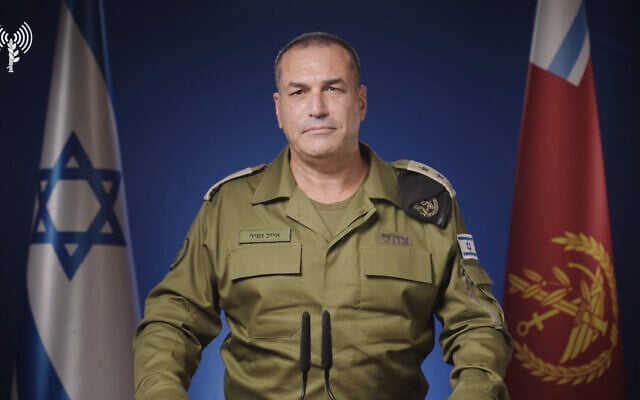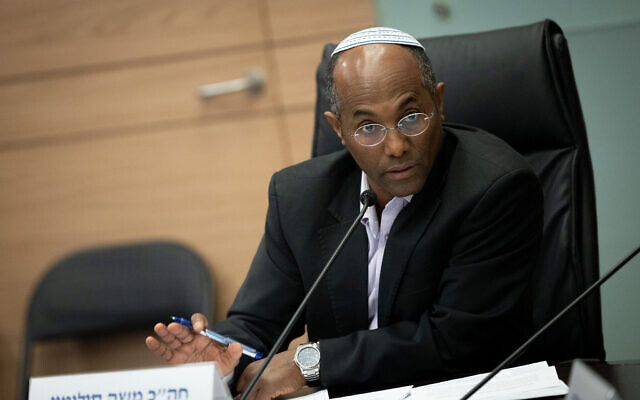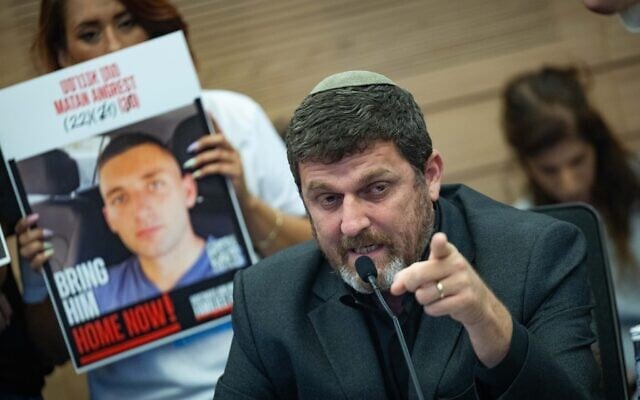

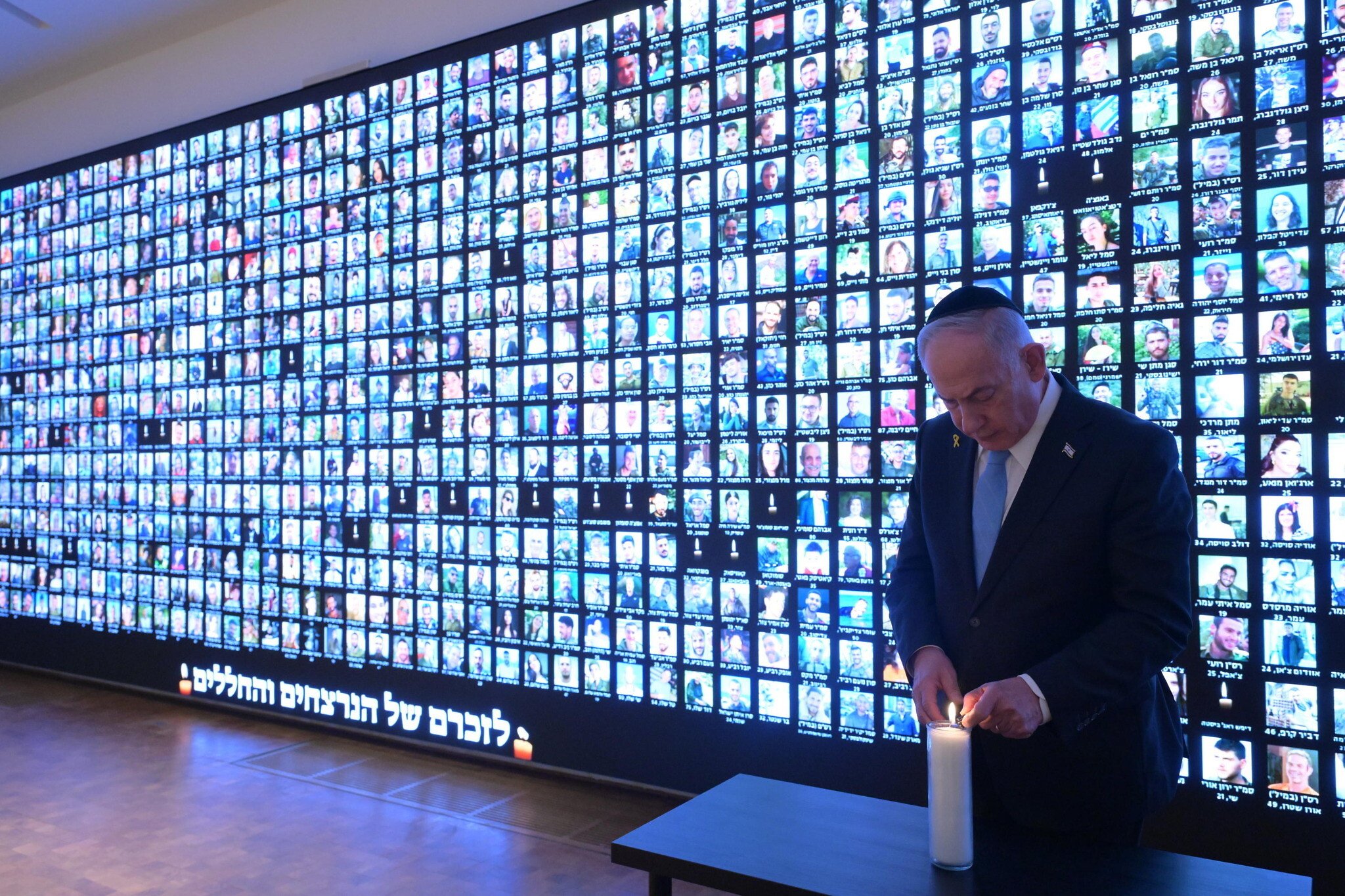
Prime Minister Benjamin Netanyahu appealed for unity ahead of the “historic” return of hostages held by terror groups in the Gaza Strip, while warning that Israel still faced security challenges, in a recorded statement on Sunday evening.
It is “an evening of tears; an evening of happiness,” a hoarse but smiling Netanyahu said in his statement, in anticipation of the captives’ release, set for Monday morning. “It is a historic event, which some did not believe would ever happen.”
“I know that we have many differences,” he said. “But on this day, and I hope also in the period that is almost upon us, we have all the reasons to set them aside, because with joint strength, we achieved spectacular victories, victories that stunned the entire world.”
The military campaign is not over, Netanyahu warned. “There are still major security challenges ahead of us. Some of our enemies are trying to recover in order to attack us again.”
“We are ‘on this,'” he promised.
There are also major opportunities as a result of the victories, he insisted. Working together, “we will overcome the challenges and take advantage of the opportunities,” Netanyahu said.
The premier recalled promises he made when visiting the families of the hostages, and thanked the soldiers of the Israel Defense Forces and the families of the fallen.
“Tomorrow marks the beginning of a new road,” he said. “A road of building, a road of healing, and, I hope, a road of unity.”
Also making a video statement ahead of the hostages’ release, IDF Chief of Staff Lt. Gen. Eyal Zamir said Sunday that the military pressure exerted on Hamas in the past two years, alongside a “complementary diplomatic move,” brought about “victory” over the Palestinian terror group.
“We will continue to act to shape a security reality that will ensure that no threat to the State of Israel and its citizens will loom from the Gaza Strip,” he said.
“With the return of the hostages, we are fulfilling one of the important goals for which we went to war, an objective that is a national, moral, and Jewish imperative,” Zamir said.
He said that “the safety of our troops in battle and the safety of the hostages in captivity were foremost in our minds as a central consideration in every course of the fighting.”
“We acted with precision and professionalism, systematically and responsibly. We made complex decisions in order not to endanger the hostages’ safety and to significantly reduce casualties among our forces,” Zamir said.
He also stated that Israel is still “in the midst of a multifront war” and that the IDF’s actions are “reshaping the Middle East and our security strategy for the coming years.”
“More challenges await us; we will continue to stand alert for our existence and our security,” Zamir added.
All 48 hostages held in Gaza, of whom 20 are believed to be alive, are meant to be released Monday in exchange for 250 Palestinian security prisoners serving life sentences, plus another 1,700 Gazans imprisoned since the October 7, 2023, Hamas-led attack that launched the war. However, it may take longer to return some of the dead hostages.
Netanyahu’s cabinet voted Friday for all hostages to be freed in exchange for Palestinian security prisoners, in keeping with the first phase of US President Donald Trump’s broader Gaza peace plan, and despite vocal objections from the premier’s far-right coalition partners.
Of the Religious Zionism’s three cabinet ministers, two voted against the deal — party leader and Finance Minister Bezalel Smotrich and Settlements and National Projects Minister Orit Strock — while Immigration Minister Ofir Sofer voted in favor of it.
Ahead of the release of hostages, Religious Zionism MK Moshe Solomon said his party will remain in the governing coalition as long as the agreement with Hamas moves to its second stage and the terror group is prevented from rearming or controlling Gaza, amid speculation that the far-right party may bolt the coalition.
“The agreement that we signed has stages,” Solomon told The Times of Israel. “Stage one is the release of the hostages and the terrorists. Stage two is the complete disarmament of Gaza and of Hamas, so that Hamas does not control the Gaza Strip in any way. And that way we achieve our war aims, we win this difficult war, and destroy Hamas.”
“If the situation is such that Hamas remains armed and in control of Gaza, of course, we cannot stay in this government,” he added.
“We are [experiencing] dissonance between great joy, pain, and fear for the future,” Solomon said. “I am happy and excited. But alongside this great joy, there is also concern and pain that the price is not simple — to release terrorists with blood on their hands, who we know with certainty will return to committing acts of terror.”
Breaking with his party in expressing explicit opposition to the deal, Likud MK Amit Halevi said he will not attend Trump’s speech at the Knesset on Monday, which is intended to coincide with the release of the hostages.
He said that Trump’s speech is an “illusion of victory” and a “false spectacle,” and that he “will not be able to participate in the parliamentary gathering.”
“This agreement is the opposite of victory,” Halevi said. “We must tell the public the truth, bow our heads in pain and humility in the face of the military failure, learn our lessons, and plan our steps to win in the future.”
Halevi criticized Israel’s concessions, saying it agreed to “the establishment of a Palestinian state on ancestral land in Gaza… to give its antisemitic enemies Turkey and Qatar a foothold here, to leave Hamas and its neo‑Nazi infrastructure intact at the height of their power, and to add thousands of arch‑murderers who will return to its ranks to continue its plan to annihilate Israel.”
Halevi has long expressed skepticism about Israel’s wartime achievements, claiming last year that the IDF overstated the damage it inflicted on Hamas. He was removed from the Knesset’s Foreign Affairs and Defense Committee in May after voting against extending the government’s authority to issue emergency call-up orders for IDF reservists.
Noam party chairman MK Avi Maoz also said that he also will not attend Trump’s speech.
“You have to be completely blind to believe that Trump’s initiative turned out well,” said Maoz, the sole MK representing the ultraconservative party, who quit the coalition in July.


